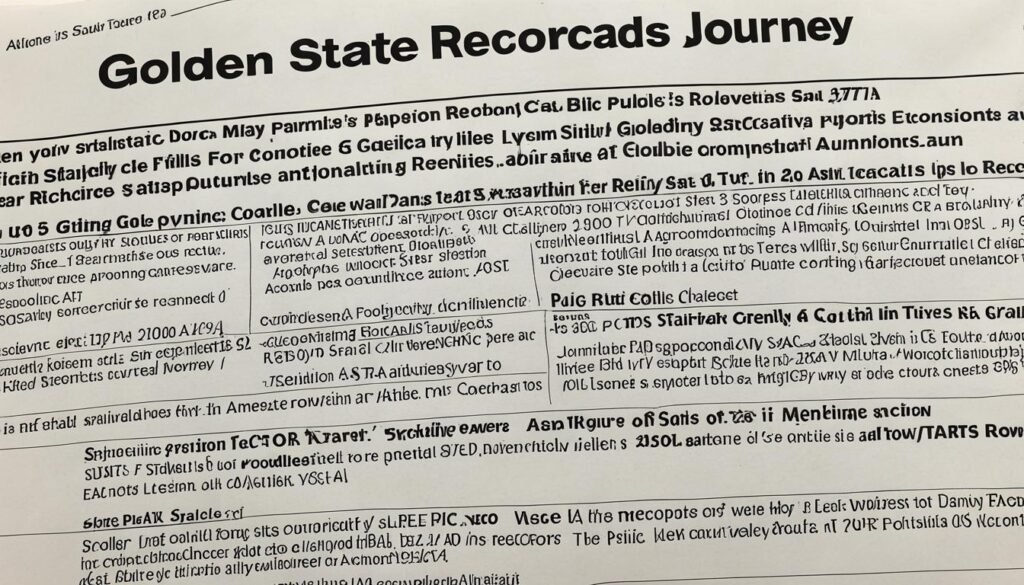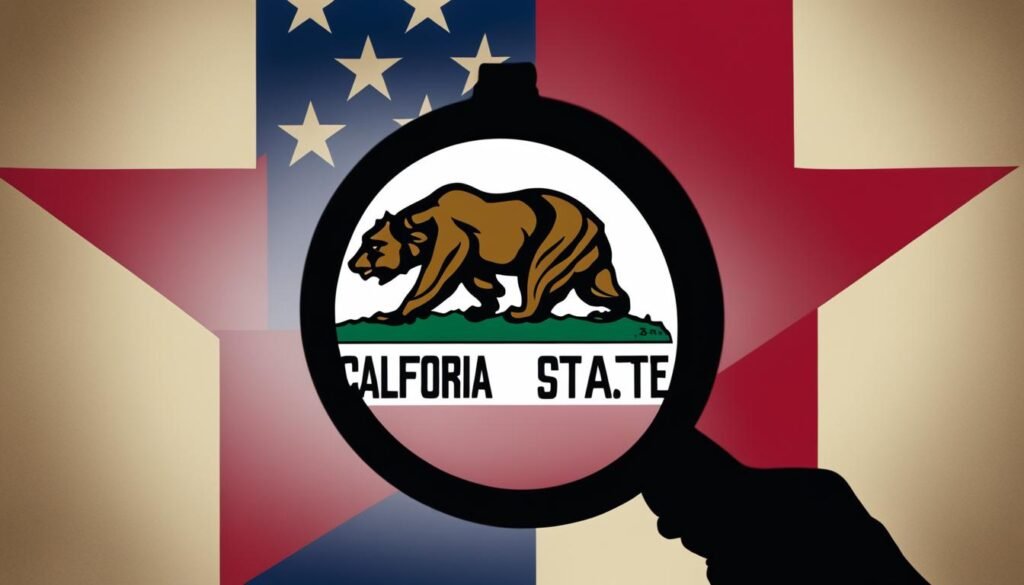Gaining access to public records is a fundamental aspect of upholding transparency and accountability in any democratic society. In California, the Public Records Act (CPRA) ensures that government agencies disclose records to the public upon request. This comprehensive legislation, passed in 1968, applies to both state and local government entities, making it a valuable tool for individuals and organizations seeking to obtain relevant information.
The California Public Records Act covers a wide range of documents that pertain to the conduct of public business. This includes any form of writing, such as emails, memos, reports, or even electronic data, that is created, owned, used, or kept by government agencies. However, it is important to note that there are exceptions to protect privacy and public safety, ensuring a balanced approach to the release of information.
Understanding the intricacies of the CPRA is key to successfully navigating the public records landscape in California. This article will guide you through the essentials of making a public records request, accessing records, and the associated fees. Whether you are an individual seeking specific information or a business conducting research, this knowledge will empower you to exercise your right to access public records.
Key Takeaways:
- The California Public Records Act provides access to government records upon request.
- All state and local agencies are subject to the CPRA, ensuring transparency in public affairs.
- Public records include various forms of writing related to the conduct of public business.
- Exceptions exist to safeguard privacy and public safety.
- Understanding the process of making a public records request is essential to obtaining the desired information.
What is a Public Record?
When navigating the public records system in California, it’s important to understand what constitutes a public record. According to Government Code §7920.530, a public record refers to any writing that contains information related to the conduct of public business and is prepared, owned, used, or retained by any state or local agency.
Public records come in various forms and formats, including written documents, emails, photographs, maps, and more. They serve as crucial resources for accessing business-related information and ensuring transparency.
When making a public record request in California, it’s essential to provide specific and narrow descriptions of the desired records. This helps agencies accurately identify and locate the documents you’re seeking. Additionally, not all documents fall under the purview of every agency. Therefore, conducting thorough research to determine which agency possesses the records you need is critical to a successful search.
For example, if you’re interested in accessing public records related to peace officer standards and training, it’s important to focus on agencies such as the California Commission on Peace Officer Standards and Training (POST). By directing your request to the appropriate agency, you increase the chances of receiving the information you’re looking for in a timely manner.
Understanding the definition of a public record and being specific in your request are key steps in successfully navigating the California public records system and accessing the valuable business-related information you’re seeking.
Ordering your Public Records Request
- Include a detailed description of the records you are requesting
- Specify the desired format for the records, such as physical copies or electronic files
- Provide your contact information for communication regarding the request
- Ensure your request includes the proper agency name and address
- If applicable, consider mentioning any time constraints or urgency related to your request
By following these guidelines, you can increase the chances of receiving the specific business-related public records you need efficiently and effectively.
How to Make a Public Records Act Request
To make a request under the Public Records Act, you have several options available. One of the easiest ways is to submit an online request through the designated portal. This allows you to conveniently provide all the necessary information and specify the records you are seeking. Alternatively, you can choose to send a written request by mail to the appropriate agency. For example, if you need to request public records from the California Commission on POST, you can mail your request to their office in West Sacramento.
When making a public records request, it is crucial to provide as much relevant information as possible to help narrow down the search and identify the specific records you are interested in. This includes details such as dates, names, locations, or any other pertinent information that can assist the agency in locating and retrieving the records.
It’s important to be aware that the agency might need some time to research and review the records before they can be released. While the Government Code suggests a 10-day response period, this is not a strict deadline. The agency will make efforts to provide a timely response, but depending on the nature and complexity of the request, they may require additional time to fulfill it.
Efficiently and effectively making a public records request ensures that you have a better chance of obtaining the desired information. By providing specific and relevant details, you help the agency in locating the records and expediting the process.

Key Points:
- Submit an online request or send a written request by mail.
- Provide as much relevant information as possible to help narrow down the search.
- Allow the agency time to research and review the records.
Accessing Public Records in California
The California Public Records Act grants individuals the right to access records held by state and local government agencies, promoting transparency and accountability. While the CPRA is specific to California, its purpose and principles align with the federal Freedom of Information Act (FOIA), which governs access to records at the federal level.
Accessing public records in California requires a basic understanding of the relevant statutes and case law. Familiarizing yourself with the California Public Disclosure Act, California Open Records Act, and California Freedom of Information Act will help you navigate the process effectively.
Similarities with the Federal Freedom of Information Act
The California Public Records Act and the federal Freedom of Information Act share the goal of facilitating access to government records. While the exact procedures and regulations may differ, both acts are founded on the principle that government records should be accessible to the public for the sake of transparency and informed decision-making.
By understanding the similarities between the CPRA and FOIA, individuals can leverage their knowledge to make public records requests more effectively at both the state and federal levels.
Navigating the Access Process
Making a public records request in California begins by identifying the specific records you seek and the relevant agency or department responsible for maintaining those records.
To initiate a public records request, you may need to submit a formal request in writing to the appropriate agency. Alternatively, some agencies provide online portals where you can submit your request electronically.
When submitting your request, ensure that it provides a clear and specific description of the records you are seeking. This will help expedite the search process and increase the likelihood of a timely response.
Keep in mind that while the California Public Records Act generally stipulates a 10-day response period, some requests may require additional time for processing. It is recommended to monitor the agency’s response and follow up if necessary.
Understanding Public Records Access in California
Accessing public records in California is a fundamental right that empowers individuals and organizations with the information necessary to hold government entities accountable. By familiarizing yourself with the California Public Disclosure Act, California Open Records Act, and California Freedom of Information Act, you can navigate the process effectively and ensure the transparency and openness of government records.
Remember, access to public records is vital in making informed decisions and upholding the principles of democracy. Utilize the resources available to you and exercise your right to access public records in California.
Making a Public Record Request in California
When it comes to accessing public records in California, individuals and businesses have the right to request and obtain information that is of public interest. Whether you want to inspect or obtain a copy of a specific public record, the process can be straightforward if you follow the proper steps.
Any person, including individuals, corporations, partnerships, and associations, can make a public record request in California. The first step is to identify the specific records you are seeking. To ensure a prompt response, it’s crucial to provide a reasonable and focused description of the records. This will help the custodian of the records identify and locate the information you are looking for.
One convenient option to make a public record request is through the Secretary of State’s Office. They provide a public record request form that can be submitted online, in person, via mail, phone, or email. The Secretary of State’s Office is committed to providing access to public records, but it’s important to note that they are not obligated to create records that do not exist or are not maintained in the normal course of business. Therefore, make sure your request is related to existing records.
Additionally, if you need assistance in refining or clarifying your request, you can reach out to the Secretary of State’s Office for guidance. They are available to help and ensure that you navigate the process smoothly.

Accessing public records is an essential right in California, and by submitting a proper request, you can gain valuable information. Remember to be specific, focused, and provide the necessary details to facilitate a prompt response. Start by identifying the records you need and take advantage of the resources provided by the Secretary of State’s Office to help you along the way.
Accessing and Fees for Public Records in California
When it comes to accessing public records in California, the Secretary of State’s Office is the custodian of these records. They can be accessed during normal business hours, allowing individuals and organizations the opportunity to obtain the information they are seeking.
For those who require access to a large volume of records, special arrangements can be made to facilitate their inspection. It is essential to adhere to the guidelines set forth by the Secretary of State’s Office to ensure that records are protected and not destroyed, altered, or removed from their designated location.
It’s important to note that the Secretary of State may charge a fee for providing copies of records. The specific fees may vary depending on the type of record being requested. However, electronic copies of records are often provided at no cost. The determination of fees will be made by the Secretary of State, so it’s advisable to contact their office for any further inquiries or questions regarding fees and document retrieval.
Accessing and understanding public records in California is crucial for those looking to obtain valuable information. By following the necessary procedures and guidelines, individuals and organizations can access the records they need to make informed decisions and promote transparency.
Conclusion
As we conclude our exploration of the Public Records Act California, it is evident that accessing information and promoting transparency is crucial for the citizens of the Golden State. The CPRA ensures that government records are made available to the public, allowing individuals and organizations to obtain valuable insights and uphold accountability.
To effectively navigate the process of requesting public records, it is essential to be specific and narrow in your request. This will facilitate a timely response from the relevant agencies. Moreover, familiarizing yourself with the CPRA and other relevant laws such as the Freedom of Information Act (FOIA) can significantly enhance your ability to obtain the desired information efficiently.
By accessing public records, especially those related to business information, individuals can stay informed, make informed decisions, and contribute to a well-informed society. Transparency is the foundation of a thriving democracy, and the availability of public records empowers citizens to hold government agencies accountable, ultimately fostering trust and confidence in the public sector.
FAQ
What is a Public Record?
A public record is any writing that contains information relating to the conduct of the public’s business and is prepared, owned, used, or retained by any state or local agency. This includes various forms and formats of records.
How to Make a Public Records Act Request?
To make a public records request under the Public Records Act, you can submit an online request through the designated portal or send a written request by mail to the appropriate agency. Provide specific and narrow descriptions of the desired records to facilitate the request process.
Accessing Public Records in California?
The California Public Records Act grants access to records in the possession of state and local governments. It ensures transparency and access to government records, with exceptions for privacy and public safety.
Making a Public Record Request in California?
Any individual, corporation, partnership, or association can request to inspect or obtain a copy of a public record in California. The request must reasonably describe the specific records being sought.
Accessing and Fees for Public Records in California?
Public records in California can be accessed during normal business hours. Special arrangements can be made for the inspection of voluminous records. The Secretary of State’s Office may charge a fee for providing copies of records, and fees may vary depending on the type of record.
Conclusion?
Navigating the Public Records Act California is essential for accessing information and upholding transparency. By understanding the process of making a public records request and familiarizing oneself with relevant laws, individuals and organizations can effectively access desired information and promote accountability.







